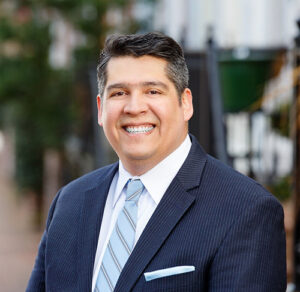
By Mark Ragland,
Senior Vice President, Consumer Mortgage Sales Manager
So you’re thinking of buying your very first home. Congratulations! Very few first-time home buyers have the cash required to buy a home outright, and will need to obtain a mortgage loan in order to buy a first house. Getting a mortgage is a new and unfamiliar process for most people, but information and assistance are readily available. In this article, we’d like to share a few pointers to keep in mind as you begin your search for home financing and start down the road toward home ownership.
How Much of a Mortgage Can I Qualify For?
This question is top-of-mind for many first-time home buyers. To answer it, let’s look at the three factors that lenders consider for every mortgage application:
- How much cash do you have?
- What does your credit history look like?
- What is your income?
1. Let’s Talk About CASH
Home buyers must make a down payment on their home in cash. Your realtor and mortgage loan officer can provide guidance on the amount that will be required.
Home buyers are often required to pay closing costs as well. Sometimes, you can get the seller to pay the closing costs. Be sure to talk to your realtor about this possibility.
For many first-time buyers, one of the biggest obstacles to home ownership is raising the cash needed for a down payment and closing costs. Fortunately, there are a number of down payment assistance programs available that are worth checking into.
1. Let’s Talk About CREDIT
To analyze a borrower’s credit history and risk, lenders look at each borrower’s credit score. Your credit score is a picture of your finances, a lender understand how you pay your debts, how much debt you have overall, and how much credit you have been trying to acquire.
Before you apply for a mortgage, you should pull your own credit report and see what is on it. It’s free to do once a year from most of the credit bureaus (Experian, TransUnion, Equifax). Check your report to see if there are any inaccuracies or things that shouldn’t be there, and correct any mistakes with the credit bureau.
A typical credit score is about 660, but can range anywhere from 350 to over 800. You may have heard a myth that buyers must have a 750+ credit score in order to qualify for a home mortgage. That’s not true.
Let’s Talk About the Most Important Factor: QUALIFYING
Lenders look for a debt-to-income ratio of 45% or less. In other words, your monthly debt payments cannot exceed 45% of your total monthly gross income. Debt payments include your total mortgage payment (which includes principal, interest, taxes and insurance) plus any other debt payments you have, like a car loan or credit cards. Here’s what that might look like for a typical home buyer:
- For example, John and Jane Borrower are hoping to get a mortgage that will have a payment of $2,000 a month. And, John and Jane are already making $800 in monthly payments on other debts, too. Added together, that would total $2,800 in monthly debt payments.
- To find out how much income John and Jane would need in order to qualify for this mortgage loan, we take that $2,800 and divide it by .45, which shows us that they would need a gross income of about $6,200 a month, or $74,000 a year to qualify for that $2,000/month mortgage payment.
I’m Ready to Buy Right Now. How Do I Get Started?
After you have checked your credit report, the next thing to do is call a lender. The lender will take all your financial information, collect your W2’s, pay stubs, bank statements, and talk to you about your personal situation. And, they can provide you a prequalification letter that you can take to the seller to say, “Look, I’ve been pre-qualified by a lender and I can buy your home.”
I’d Like To Buy a Home in a Few Years. How Can I Get Ready?
The biggest barrier for anybody buying a home is showing that they have enough cash to make a down payment and cover closing costs.
So, start a savings plan now. Start setting aside money, and cut out the things that you don’t really need. If you’re serious about buying a home down the road, do you really need to eat out every other night, or have that cup of coffee at Starbucks every morning? These things add up. Put aside that money and you’ll be surprised how fast it adds up, especially if you put it into a savings account and take advantage of compounding.

